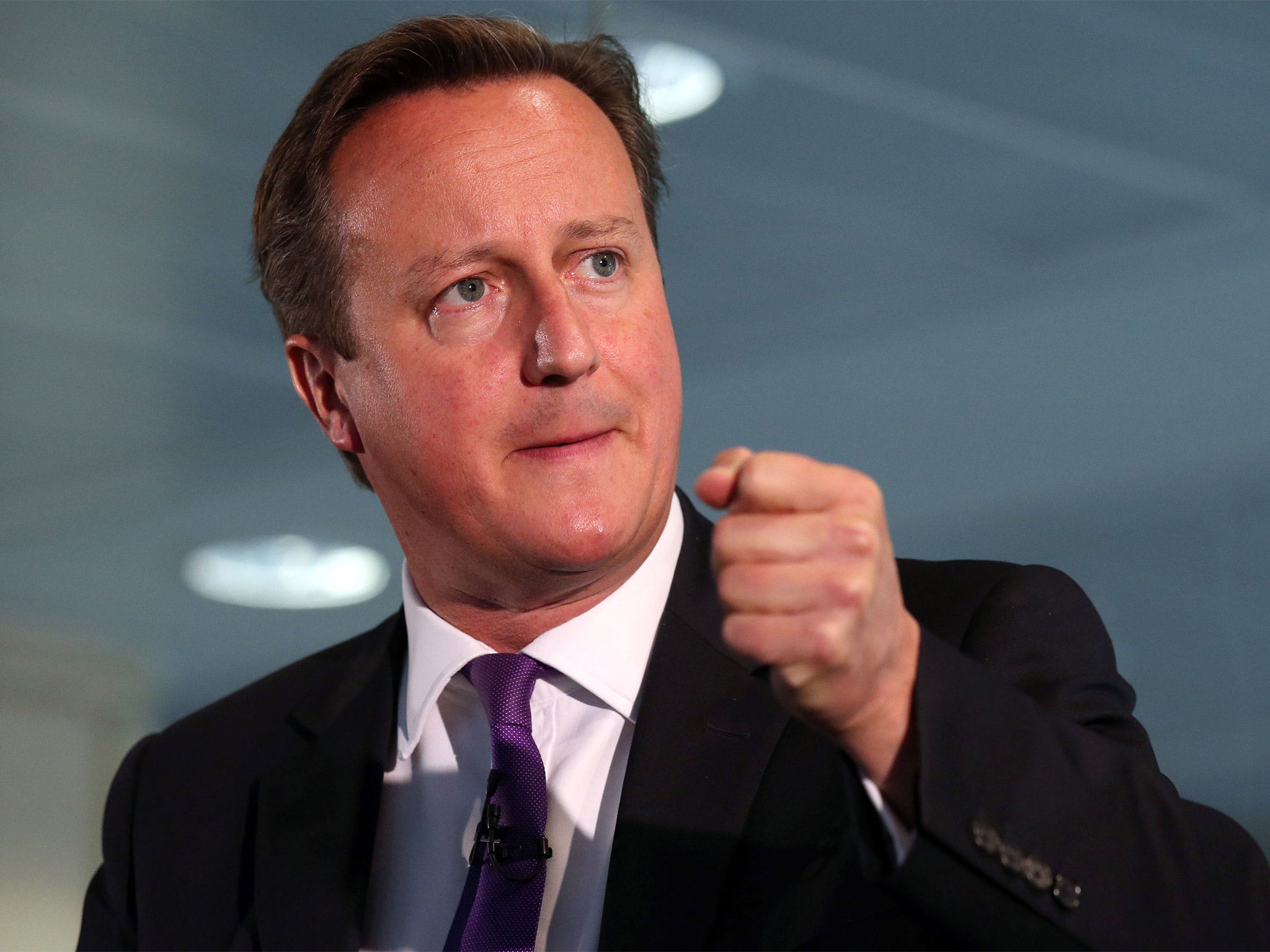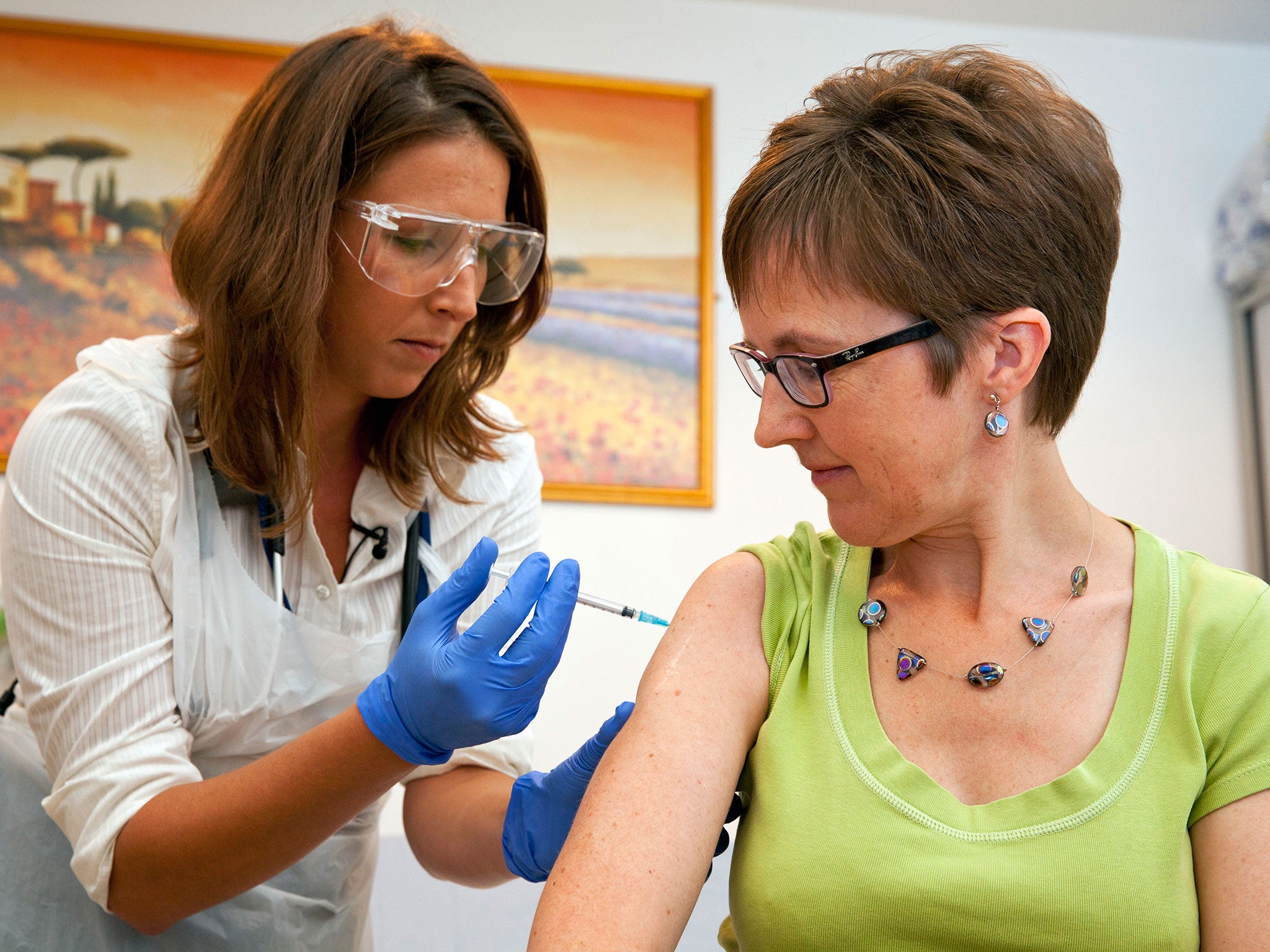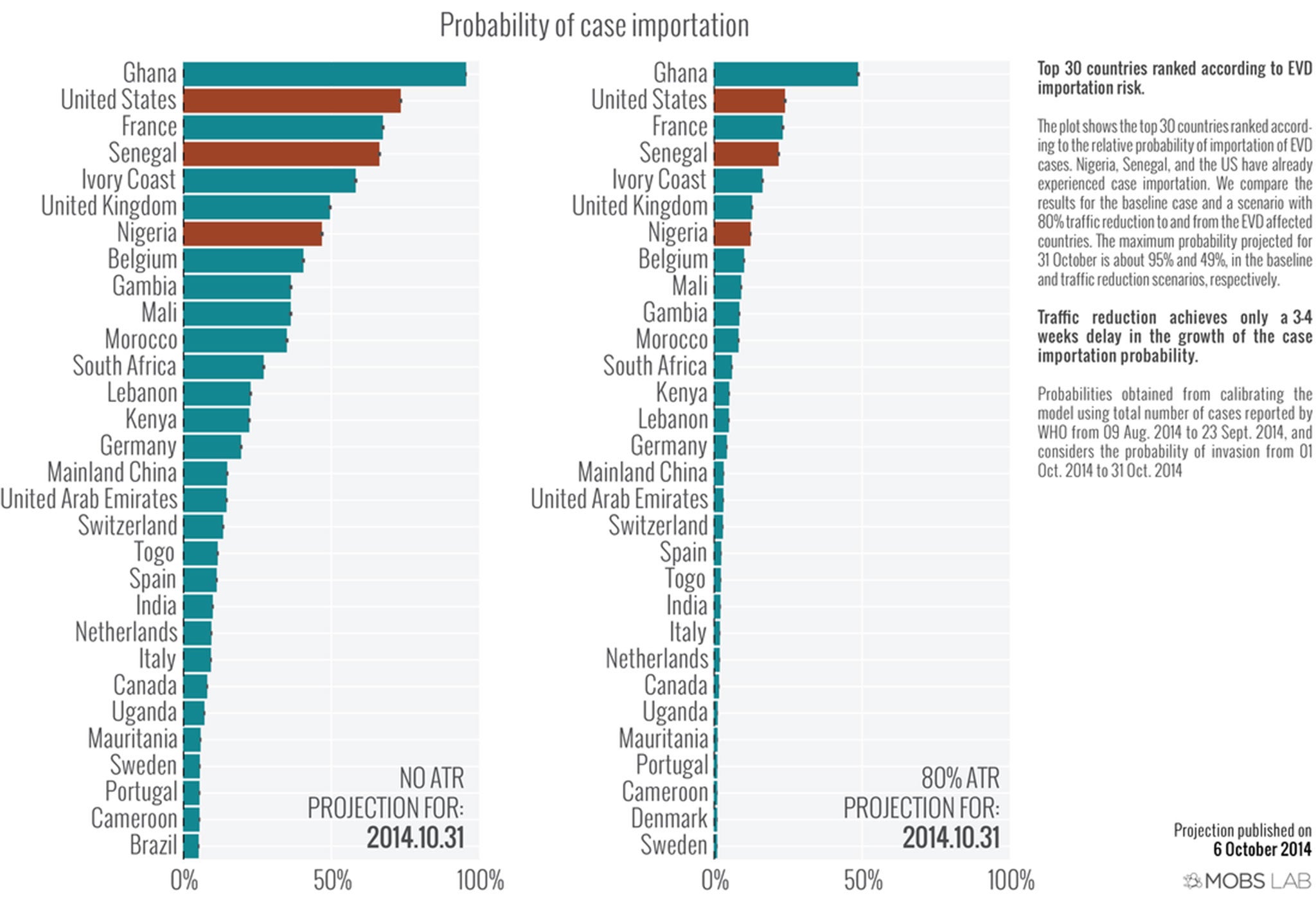Ebola crisis: Cameron defends 'enhanced screening' for deadly virus at major UK airports
Prime Minister defends move that critics have called a 'complete waste of time'

Prime Minister David Cameron has defended the decision to introduce enhanced screening for Ebola at major airports and terminals, saying it had been taken on "medical advice".
Questions have been raised about the checks, which are to take place at Heathrow, Gatwick and Eurostar terminals, with a spokesman for Gatwick saying today that the airport had not been given any instructions about how the screening should be carried out.
The move has also been criticised by health experts, with one describing it as a "complete waste of time".
Further details of what the screening would involve were not available from Public Health England on Friday.
Thursday’s announcement about the enhanced screenings followed confusion over whether the Government would introduce the measure and conflicting messages coming from Chancellor George Osborne, the Department of Health, and Defence Secretary Michael Fallon.
Speaking on a constituency visit in Chipping Norton, Oxfordshire, today, Mr Cameron said: "We are taking all the steps we can to keep our own people safe here in the UK.
"What we do is listen to medical advice and we act on that advice, and that's why we are introducing the screening processes at the appropriate ports and airports."
Mr Cameron said the Government was "taking all the steps we can" to prevent an Ebola outbreak in the UK.
"What we are focusing on as a country is taking action right across the board to deal with this problem at source," he said.
But David Mabey, professor of communicable diseases at the London School of Hygiene and Tropical Medicine, said the screening was a "complete waste of time".
"Firstly, there won't be anyone coming from these [West African] countries because all direct flights have been cancelled," he said. "Are they going to screen everyone from Brussels, Paris, Frankfurt and Amsterdam? That would lead to a lot of delays and disruption.
"Secondly, why would anyone admit that they have been in contact with someone when they're in a hurry to get through immigration control when they arrive at the airport?
Prof Mabey said that instead the Government should be concentrating on increasing awareness of what people should do if they think they might be at risk.
Asked if he thought Ebola would reach the UK, he said: "I think it's bound to happen. We have a lot of links with West Africa. There is lots of coming and going so I'm sure there will be a few cases."
World Health Organisation (WHO) director of strategy Dr Chris Dye said it was unlikely the screening would detect anyone with Ebola coming into the country.
"The chances of someone with Ebola turning up in the UK is relatively small," he told BBC Radio 4's Today programme.
"The chance of someone turning up in the UK showing symptoms of Ebola at the time is even smaller.
"It potentially could prevent a few cases but I suspect the more important impact is that it will hugely increase awareness."

Downing Street said the tests will be introduced for passengers travelling from the main Ebola-affected regions in West Africa - Liberia, Sierra Leone and Guinea - where the death toll has reportedly risen to nearly 4,000, to give Britain an additional level of protection from the highly contagious virus.
The screening will involve assessing passengers' recent travel history, who they have been in contact with, and onward travel arrangements, as well as a possible medical assessment conducted by trained medical personnel.
The introduction of tests comes after calls for ministers to follow the lead of the United States, which implemented screening at some airports.
MP Keith Vaz, chairman of the Home Affairs Select Committee, welcomed the news but said the Government must learn lessons from its "delay in action".
He said: "This now places us on the same page as the USA and South Africa, which began screening in April this year.
"We need targeted, enhanced screening to reassure the public and to relieve pressure on the Border Force.
"As to whether more should have been done sooner on this matter, the time for an inquiry is not now, but we must learn lessons from this delay in action."

Contingency planning is also under way, including a national exercise to make sure the country is fully prepared.
The introduction of screening comes as a Briton died in Macedonia with symptoms similar to Ebola, although Public Health England said it was "unlikely" the death was caused by the virus.
A spokesman for Heathrow said the airport was working with Public Health England to implement the measures.
He said: "We would like to reassure passengers that the Government assesses the risk of a traveller contracting Ebola to be low.
"The welfare of our passengers and colleagues is always our main priority and we are working with Government to support the implementation of the additional screening measures."
PA
Join our commenting forum
Join thought-provoking conversations, follow other Independent readers and see their replies
Comments